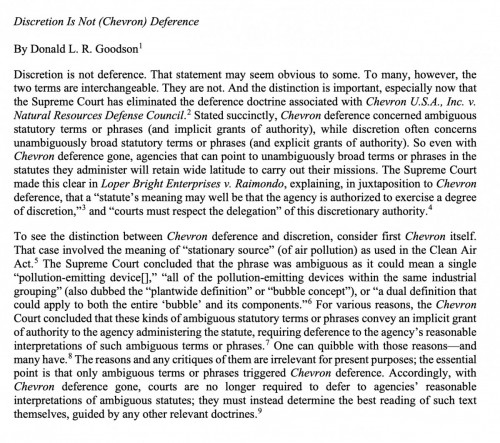-
Distributional Impacts of Carbon Capture in the US Power Sector
Published in the Journal of the Association of Environmental and Resource Economists
While some see carbon capture, utilization, and storage (CCUS) as crucial for cost-effective decarbonization, it faces opposition based on air pollution and equity concerns. To understand this cost–air pollution trade-off, we simulate the potential impacts of allowing CCUS deployment in the U.S. power sector under plausible climate policies. We show that the existence of this trade-off critically depends on the underlying policy, which affects the type of generation CCUS could displace, and that allowing CCUS can yield energy-cost savings, particularly benefiting lower-income communities.
-
Just Regulation: Improving Distributional Analysis in Agency Rulemaking
Published in Ecology Law Quarterly
This Article seeks to understand the shortcomings of current agency practice and outline what agencies can do better. To do so, it examines fifteen significant proposed or final agency rules promulgated during the Biden-Harris Administration’s first eighteen months and reveals four categories of limitations. First, agencies often pursue inconsistent goals across different regulatory initiatives. Second, they do not grapple with the core issue that distributional analysis should raise: the extent to which the better distributional consequences of one alternative should trump the higher net benefits of another alternative. Third, agencies do not apply a consistent approach to defining disadvantaged groups, which makes the analysis inconsistent and unpredictable. Fourth, the distributional analysis relies on a truncated set of costs and benefits, and thus presents an incomplete picture of the consequences of regulation on disadvantaged communities.
-

Discretion Is Not (Chevron) Deference
Published in the Harvard Journal on Legislation
Discretion is not deference. That statement may seem obvious to some. To many, however, the two terms are interchangeable. They are not. And the distinction is important, especially now that the Supreme Court has eliminated the deference doctrine associated with Chevron U.S.A., Inc. v. Natural Resources Defense Council. Stated succinctly, deference concerned ambiguous statutory terms or phrases (and implicit grants of authority), while discretion often concerns unambiguously broad statutory terms or phrases (and explicit grants of authority). So even with deference gone, agencies that can point to unambiguously broad terms or phrases in the statutes they administer will retain wide latitude to carry out their missions.
-
Major Rules in the Courts
An Empirical Study of Challenges to Federal Agencies’ Major Rules
This working paper summarizes the first empirical study of how major rules, as defined under the Congressional Review Act (CRA), fare in federal court. The study covers each of the 1,870 major rules issued from the CRA’s enactment in 1996 through the end of the Trump Administration. The roughly 24-year period covering four administrations (two from each party) is the longest continuous timespan of any empirical study of agency win rates.
-
The Narrow Reinterpretation: The Oil and Gas Industry’s Retreat from the Broad Permitting Authority It Long Embraced
Published in the Harvard Environmental Law Review Online
What's the function of oil and gas permitting agencies? Despite broad statutory grants to federal agencies, oil and gas companies increasingly argue that the role of those agencies is to promote development regardless of whether it is socially desirable. But this “Narrow Reinterpretation,” in addition to lacking textual support, is at odds with longstanding practice. What changed? Not the governing statutes, at least not in pertinent part. But the energy sector has: renewable sources have replaced coal as the primary competitors to oil and gas.
Viewing all publications in Academic Articles/Working Papers



